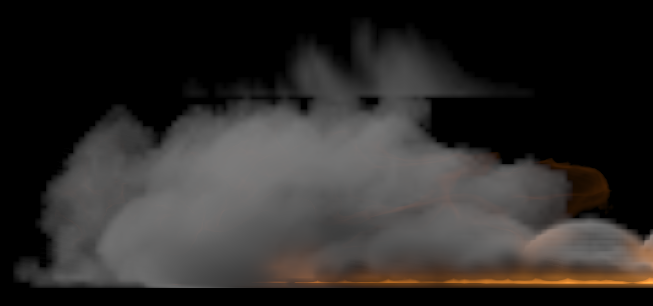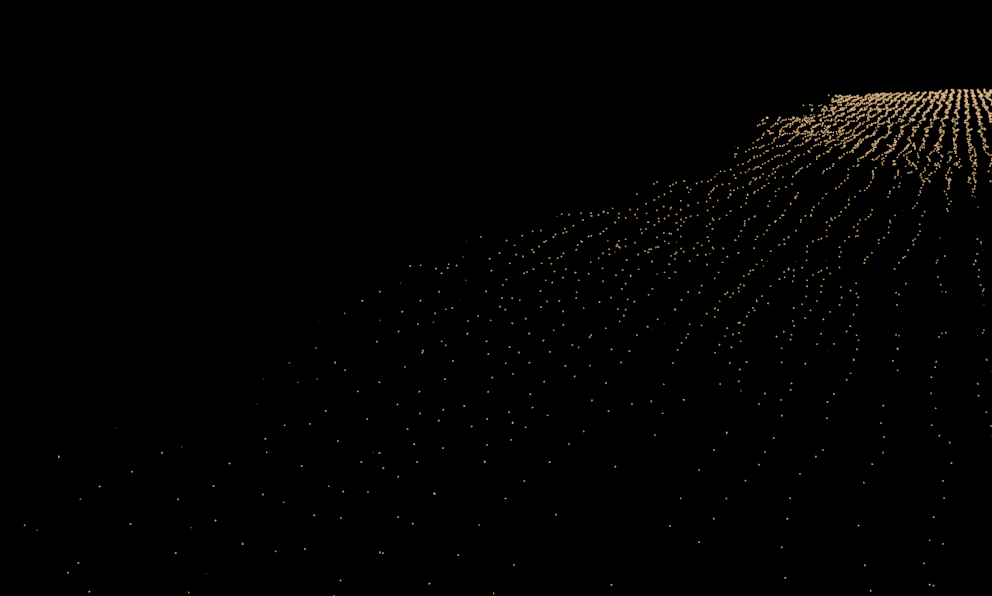This page provides information on the Output rollout.
Overview
The Output rollout holds the controls for the simulation result.
UI Path: ||Select PhoenixFDSim|| > Attribute Editor > Output rollout
Parameters
Output Path
Simulation Save Path | outPath, outPathResolved – This is the directory and the name template for the output cache files. It uses the $(scene_path) macro by default, and there are also other available macros as listed below. To set up rendering and simulation cache paths manually, see How to change the default Phoenix paths on the Tips and Tricks page.
Since version 3.00.02, Phoenix FD can export VDB grid data. Check the How to export PhoenixFD simulation to OpenVDB format video.
Appending a .vdb extension after the Output Path tells Phoenix to write its data in the OpenVDB format. Particle data can also be exported using the .aur or the .vdb format.
Note that due to the difference between the compression algorithms used by Phoenix FD's Aura format and the OpenVDB format, exported VDB caches may produce a slightly different result at render time compared to Aura caches when the Storage Quality is set to a value lower than 20 (i.e. Lossless).
Clicking the "..." button will open a menu with the following options:
Browse - Opens a dialog where you can select where the simulation caches will be written to. The filename you type in must contain # signs so each simulation frame will be written to a differently numbered file. Also, you can choose between two file formats - AUR and VDB cache files. In order to write the simulation caches to VDB in the default simulation path, you can just edit the Simulation Save Path to $(work_path).vdb.
Delete Cache Files - Clears the cache files matching the provided Simulation Save Path pattern.
Reset to Default - Resets the Simulation Save Path to default.
Help - Opens this Help page.
Storage Quality | storageQuality – The output grid and particle channels are compressed by default in order to increase the performance (faster cache loading) and to avoid excessive memory consumption. This parameter can range from 8 to 20 - 8 is the smallest size, while 20 is the best quality and is uncompressed. If this value is set too low, different artifacts may start appearing depending on the type of scene. For grid channels, artifacts shaped like horizontal slices may appear in preview and rendering, such as in the following image:
Example: Fire/Smoke compression artifacts
Example: FLIP/Liquid compression artifacts
For particle systems such as Liquid or Foam, the artifacts would look like ordered lines of particles, as in the following comparison (click to zoom in):
Storage quality = 19
Storage quality = 14
(artifacts in the lower left corner)
Storage quality = 8
Backup Interval | backupInterval – The frame interval between two backups of the full simulation state. You can later continue a stopped simulation from such frames (see the Restore button in the Simulation roll-out). To make a Restore possible at every frame, set this parameter to 1. A value of 0 means no backup frames will be exported.
Compress Particles | prtcompress – Enables compression of the simulated particle systems when they are written to AUR cache files. VDB cache files exported from Phoenix do not support particle compression. Simulations with very high particle counts, such as 50 million or more, will produce large caches, so particle compression will help reduce the cache sizes significantly. If you are writing or reading the cache files over the network or to a disk drive, this could significantly speed up simulation and rendering. However, if you are writing the simulation caches to an SSD drive or other fast storage, and you can afford to have large cache files, then disabling the compression could actually speed up the simulation.
Output Grid Channels
Choose which simulation channels will be saved to the created cache files. The more channels are used, the slower the simulation runs and the larger the output files are. While scrolling the timeline, you can check which channels are present in the loaded cache file for the current frame from the Cache File Content section in the Simulation rollout.
Note that in the case of FLIP / Liquid simulations, currently only the liquid particles can be automatically converted to a grid during export, while all the other systems (e.g. Foam, Splash, etc.) are exported only as particles.
Temper./Liquid | outTemp – If this is a fire/smoke simulation, export the Temperature channel. If it's a liquid simulation, export the liquid amount which is needed so that you can mesh the liquid.
Smoke | outSmoke – Export the smoke density.
RGB | outUVW – Export the RGB color. You can use this for simulations where you are mixing different liquid colors or materials through a Phoenix FD Grid Texture.
Wavelet | outWavelet – Export the wavelet data of a fire/smoke simulation. You need this if you are going to resimulate a fire/smoke simulation in order to increase the resolution and add more detail using wavelet turbulence.
Speed | outSpeed – Export the speed of the simulation. You can use this for coloring the simulation at render time based on how fast different parts of the fluid move.
Velocity | outVel – Export the velocity of the simulation. The difference between the Speed and Velocity channels is that Velocity is a vector and takes 3 times more space in the cache file than the Speed channel. However, Velocity has direction and is needed for Resimulation and motion blur of the fire/smoke simulation or the liquid mesh. Because Speed can be calculated from the Velocity, it is not exported separately when Velocity is exported.
Viscosity | outVisc - Export the Viscosity channel. Required for variable Viscosity simulations You may also choose to enable this if, for instance, your setup requires that you use the Viscosity channel as a mask through a Phoenix FD Grid Texture.
Fuel | outFuel – Export the fuel density in the simulation.This needs to be enabled when simulating the process of Burning.
Texture UVW | outTexUVW – Export the Texture UVW channel. Enable this to generate texture mapping coordinates that follow the movement of the fluid. This way you can change the textures you want mapped over your fluid even after the simulation has ended, without the need to simulate again.
Advection Origin | outAdvPos – Export the advection origin of each voxel in the simulation. This is needed for the Precise Tracing Blend Method for retiming simulated sequences in the Input rollout, and is also needed for the Use Advection Origin for Motion Blur option in the Simulation rollout.
Special | outSpecial – Export internal or special channels into the Special channel (alias to the Smoke channel) so they can be visualized using one of the volumetric shaders of the Simulator (with Mode set to Volumetric, Volumetric Geometry, or Volumetric Heat Haze). Such channels can also be read by the Grid Texture and used for rendering.
Solid Voxels – Exports the solid voxels as smoke. Voxels covered by many obstacles contain more smoke.
Divergence Symm – Exports the negative divergence of each voxel.
Divergence Smooth – Exports the blurred negative divergence of each voxel.
Vorticity – Exports the length of the curl of each voxel. Can be used for whitewater shading.
Vorticity Smooth – Exports the blurred length of the curl of each voxel. Can be used for whitewater shading.
Velocity Gradient – Exports the length of the gradient of the velocity field.
Injector – Exports the pressure term created by sources in Inject mode or formed during the simulation.
Liquid Surface – Exports the surface created by the simulation.
Solid Geom Type – Exports the internal geometry type in each voxel.
Hydrostatic Pressure – Exports the pressure of the liquid at each voxel due to the effect of gravity.
Voxelization Issues – Exports voxels where the solver would produce wrong results during simulation. Such voxels are near overlapping triangles, inverted normals, open edges or other geometry issues.
Output Particles
The particle export parameters share a User Interface to keep the user interface compact. Each particle system can be selected individually from the drop-down list, and the output settings can be selected for that particle system. When a particle system is selected again, the same settings are retained.
Export Selected Particle System – When enabled, the selected system will be exported.
Note that writing more channels to the cache files takes more time and will add up to the simulation time, so if you know in advance that you will not be needing a certain channel for rendering, then it would help the simulation times if you turn it off.
Velocity – The particle velocity channel will be exported. Use this option when you need motion blur for the particle systems such as Foam, Splash, etc.
ID – When enabled, the particle ID channel will be exported. This channel is used during rendering to identify each particle. Use it when render time size variation is needed, or when frame blending will be involved (animated frame index or non-integer play speed).
Age – When enabled, the particle age channel will be exported. This channel is appropriate only for particles with animated particle ages such as those included in the Phoenix Particle Texture, Phoenix Source, and Particle Shader. In this case, the parameter will be animated not using the absolute global time, but the particles' age.
The Age channel is affected by the Time Scale option under the Dynamics roll-out which acts a multiplier for the Age.
Viscosity - The particle Viscosity channel will be exported. Enable this if your Resimulation requires the calculation of viscosity.
RGB – When enabled, the particle RGB channel will be exported. You can use this for simulations where you are mixing different particle colors or you shade the particles by the particle RGB channel through a Phoenix Particle Texture. Also, enable this if you want to be able to preview the RGB channel as a particle color in the Viewport.
Size – You would need this channel to be exported if you would like to use the simulated particle sizes when rendering. Note that the WetMap particle system does not export the Age channel and its Size channel decreases with time.
Texture UVW – The particle Texture UVW channel will be exported. Enable this to generate texture mapping coordinates that follow the movement of the fluid.
Using Environment Variables with Phoenix Paths
There are path environment variables in every OS, and they can be used with Phoenix FD cache file paths.
For example, to access environment variables in Windows 10 and Windows 8, follow these steps:
- In Search, search for and then select System (Control Panel).
- Click the Advanced system settings link.
- Click the Environment Variables... button.
- In the System variables section, using Edit System Variable (or New System Variable) window, specify the value of the PATH environment variable.
Using this, you can create a path (variable), give it a name, and use it for cache files in Phoenix FD.
For example, the path D:\PhoenixFD\Cache can be given the environment variable name "Cache". In the Phoenix Simulator Output rollout, you can specify the Output Path as the following:
$env(Cache)\cache_name###.aur
This will save the Phoenix cache files in D:\PhoenixFD\Cache.
Note that in order to reference environment variables, the following pattern must be used:
$env(<variable_name>)









